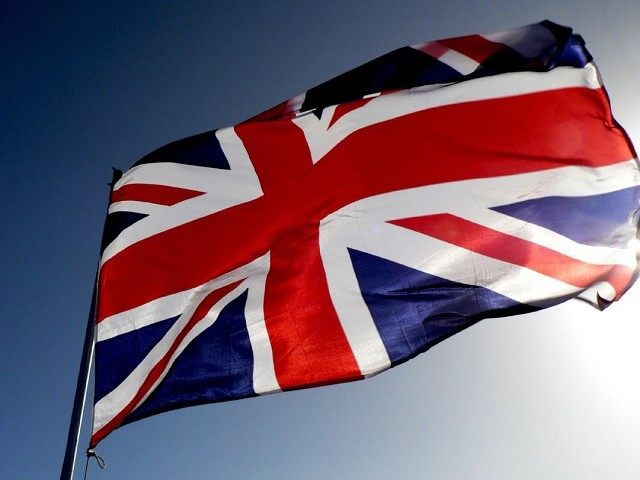On the back foot and with no rational arguments, Europhiles are increasingly turning to wishy-washy emotional reasons for staying within the EU. In light of this, it is unsurprising Brussels is now pushing for an integrated “European culture” programme to convince the Great British Public of our shared European culture.
There is just one inconvenient truth for the pro-Europeans; there is no such thing as “European culture”! Despite this, the European Parliamentary Culture committee, aptly abbreviated to CULT, wants to use British taxpayers’ money to promote EU Member States’ culture “on the basis of an integrated and holistic approach”.
The CULT report, drafted last month, wants to extend EU spending on the upkeep of historical and cultural sites across the European Union, on top of their funding through existing EU cultural funding initiatives such as Creative Europe and Horizon 2020. CULT itself concedes cultural heritage is “primarily national or local responsibilities”, so why can’t British taxpayers pay for own cultural projects?
It may sound reasonable enough to allow Brussels more money to fund cultural projects across the European continent. However, the EU’s budget can only be increased by one method – increased contributions from EU Member States, particularly net contributors such as Britain. Why must British taxpayers, who already spend millions protecting our national heritage, now spend even more protecting historical sites overseas? After all, British money should be spent on British people whether by creating jobs, investing in the NHS and education or cutting our enormous deficit.
But the increased spending plans don’t end here. Not content with ridiculous EU initiatives such as European Capitals of Culture and European Heritage Days, CULT also demands “appropriate funding” for their plans to hold a European Year of Cultural Heritage. If the European Commission agrees to this proposal, Britons will be subjected to a barrage of EU propaganda lasting an entire year, about how ‘European’ Britain is and how we must stay within the EU. Undoubtedly, this European Year of Cultural Heritage will just happen to fall in 2017, and will no doubt be just in time for our In / Out referendum on Britain’s EU membership.
What the EU does not seem to understand is ‘Europe’ is merely a geographical expression – nothing more. There is no cultural affinity between the Portuguese and the Poles, Cypriots or Czechs, Germans or Greeks, however federal the EU wants to make the whole EU project. Britons themselves concur. In a recent poll commissioned by the EU itself, it was revealed almost 60% of Britons do not consider themselves European – in any sense of the word!
Britain does have a cultural affinity with certain countries however; Australia, Canada, New Zealand and the United States of America. Our five Anglosphere nations are bound together by a common language, culture, history and law. With today being St. George’s Day, the day when we celebrate the best of English culture, heritage and identity, we should remember just how different our culture is from those cultures found in continental Europe.
What most differentiates Britain and our English-speaking cousins from the various cultures found on mainland Europe is our political principles. Our unshakeable belief in liberty, democracy and resistance to overweening centralisation, for which the EU political project is so notorious. Our beliefs set us apart from continental Europeans who throughout history have known nothing but centralisation and absolutism.
Recognising the cultural and political differences between the English-speaking nations and continental Europe is not a “little Englander” or isolationist mentality, quite the opposite. We want to deal with global challenges by co-operating globally, not being denied a voice and being dictated to by Brussels.
Nor do we look down on our European neighbours. Whether it is by consuming French wine and cheese, buying German cars or going sightseeing in Rome, the British people love interacting with continental Europe. Indeed, it is precisely because we hold the multitude of European cultures in such high esteem that we want to retain our individual heritages instead of being reduced to just one federal melting pot.
In the economic chaos of the 1970s, Britain’s political leaders believed English-speaking civilisation was finished and we should try to fit in with our geographical neighbours. 40 years later, Britain still sits uncomfortable across the English Channel, on the edge on the European project, aware we don’t belong in the EU, yearning to leave, but prevented from doing so by the out-of-touch politicians in Westminster and Brussels.
If the Europhiles can make an appeal to the hearts and minds of the Great British Public, then so can we Eurosceptics. Let’s think globally and look to our historic and cultural allies rather than be confined to the inward looking EU mind-set. Let’s free ourselves from the undemocratic and illiberal EU political project, which is like a noose around our necks. Let’s Get Britain Out of the EU.
Luke Stanley is Research Executive at Get Britain Out

COMMENTS
Please let us know if you're having issues with commenting.